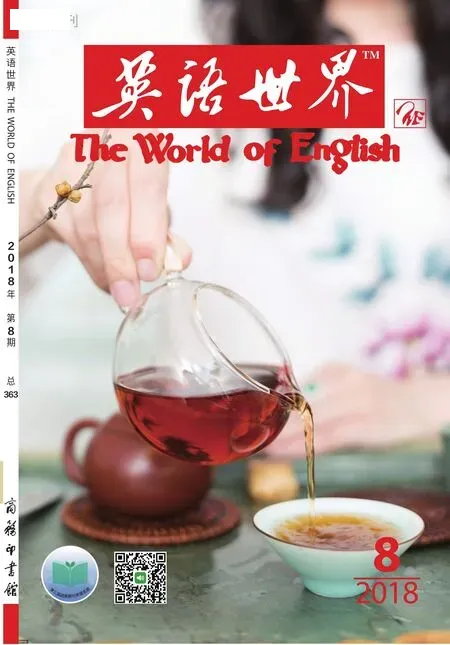支招、出招和中招
文/王逢鑫
“招”或“招数”,亦作“着”或“着数”,原义与带有竞技性的下棋和武术有关。第一个意思指“一步棋”。英语译为a move in chess。例如:
1. 他只因一着错,输掉满盘棋。As he made only a wrong move, he lost the whole chess game.
“招”的第二个意思指“武术动作”。英语译为a wushu move。例如:2. 这位武术大师招数利落。The wushu master is nimble in his moves.
“招”的第三个意思比喻“计策、办法或手段”。英语译为device、skill、 tactics、trick。例如:
3. 他使尽了招数,都不灵。He exhausted all his devices in vain.
4. 为了打赢这场比赛,他施展出了全部招数。In order to win the game,he called on all his skills/tactics.
5. 他增强记忆的怪招就是简单地将双手攥成拳头。His weird trick to improve his memory is simply to clench his hands into fi sts.
汉语与“招”或“着”搭配的褒义词有“高招”(clever move、smart trick)、“妙招”(clever tactic)和“绝招”等。例如:
6. 她减肥的两大妙招是“管住嘴,迈开腿”。Her two clever tactics for weight loss are balanced diet and regular exercise.
“绝招”的第一个意思是“绝技”。英语译为unique skill。例如:
7. 虽然他年纪尚小,却身怀武术绝招。Although he is still young, he has unique wushu skills.
“绝招”第二个意思是“一般人想象不到的计策或手段”。英语译为unexpected tricky move或most unusual trick。例如:
8. 他想出一个绝招来解决这个问题。He conceived an unexpected tricky move to address the problem.
汉语与“招”或“着”搭配的贬义词有“坏招”(mean trick)、“损招”(immoral trick)、“阴招”(dirty trick)、“狠招”(vicious trick)、“毒招”(deadly trick)和“花招”(showy trick)等。例如:
9. 这个骗子用损招欺骗一位老人时,当场被警察抓住。When the swindler was using an immoral trick to deceive an old man, he was caught on the spot by the police.
10. 这个老赖耍阴招,拒绝还清银行贷款。The deadbeat played a dirty trick and refused to pay off the bank loan.
11. 顾客对缺斤少两的菜贩子说:“你不要给我耍花招!”The customer said to the vegetable dealer who was giving short weight, “Don’t play showy tricks on me!”
“支招儿”或“支着儿”的意思是“从旁给人出主意,尤其指给下棋者出主意”。英语译为to give sb advice、to offer sb advice。例如:
12. 他喜欢在观棋时给下棋者支招儿。When he watches a game of chess,he likes to offer advice to a chess player.
“出招”,英语译为to make a move。例如:
13. 这个投资者企图赚大钱,就出险招,买进了这家濒临破产的公司的大量股票。In an attempt to make good money, the investor made a risky move and bought a lot of stocks of the company which was on the brink of bankruptcy.
“见招拆招”的意思是“根据目前的情况迅速而有效地做出反应”。英语译为to respond quickly and effectively according to the current situation。例如:
14. 我们已充分考虑到可能遇到的困难,并做好准备,以便见招拆招。We have taken into full consideration all the dif fi culties we may meet with, and made good preparations so as to respond quickly and effectively according to the current situation.
“中招”的意思是“上当”“受骗”或“被坑”。英语译为to be deceived、to be cheated或to be taken in。例如:
15. 这位老人相信了骗子的谎言,结果中招了,被骗走了一万元。As the old man believed in the swindler’s lie, he was taken in and cheated of 10,000 yuan.
“一招鲜,吃遍天”的意思是“拥有一技之长,可以到处谋生”。英语可以译为:With a professional skill in a particular fi eld, you can make a living anywhere in the world. “一招鲜”强调的是“一种绝招”。有人将“一招鲜”译为a one-trick pony是不妥的。one-trick pony原指“经过训练后只会表演一种杂技的小马”。其比喻意思是one that is skilled in only one area(仅在某一领域有技能的人)或one that has succeeded only once(仅成功过一次的人)。 □

